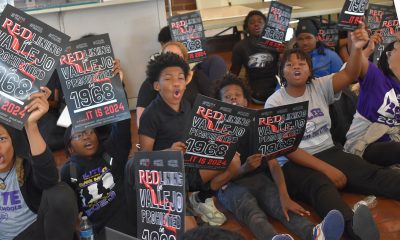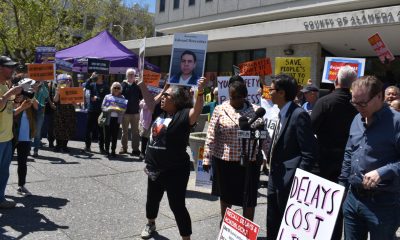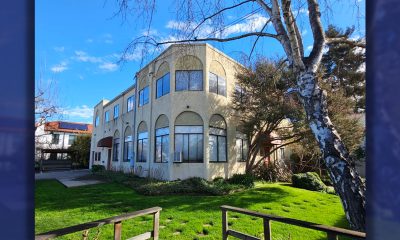Community
California Voters Give Schools, Teachers Top Grades in Year-End Survey
However, on most issues in the survey, Democrats and Republicans generally disagreed. One notable issue was whether schools should spend more time teaching about the causes and consequences of racism and inequality.
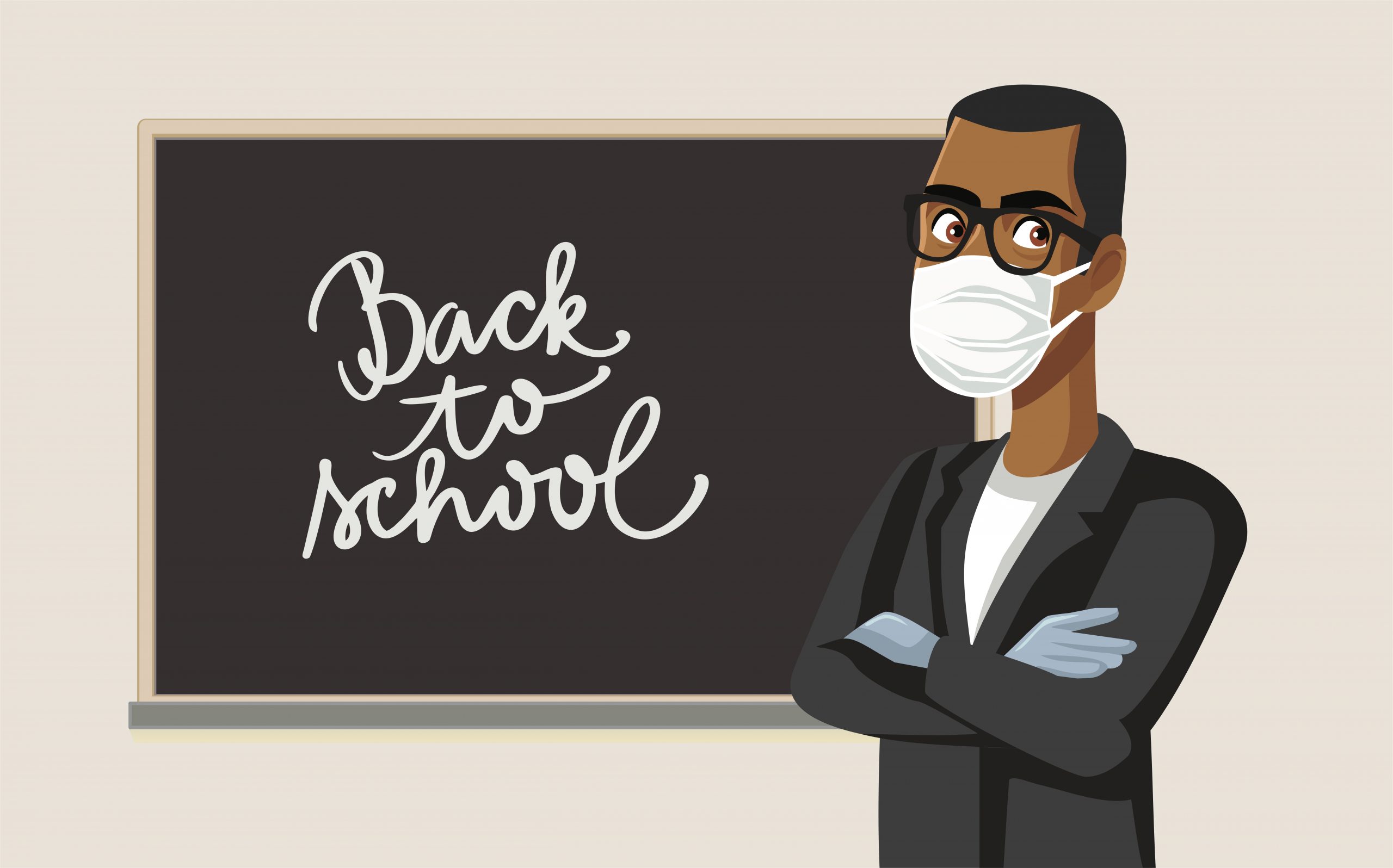
Despite perceptions of the public’s widespread unhappiness with the slow reopening of California’s schools last spring, most voters surveyed, including parents, gave the highest marks in a decade of polling to the state’s public schools in general and their schools in particular.
However, on most issues in the survey, Democrats and Republicans generally disagreed. One notable issue was whether schools should spend more time teaching about the causes and consequences of racism and inequality.
At the same time, they also expressed worry about the effects of the pandemic on children and said they would strongly support various measures to accelerate student learning, including hiring counselors and providing intensive tutoring and summer school.
The independent, nonpartisan research center PACE and the USC Rossier School of Education released their ninth annual poll on education on July 8. The survey firm Tulchin Research solicited views of 2,000 registered California voters representative of the state’s demographics and party affiliation, with an oversampling of 500 parents with children under 18 living at home. Surveys were conducted in English and Spanish.
Researchers chose May, with schools winding down after a partial return to in-person instruction, because it enabled participants to reflect on the year and look ahead, said Heather Hough, PACE’s executive director.
Given widespread news reports showing anger and mistrust toward schools, Hough said she expected more criticism. Instead, a record 38% of voters overall and 53% of parents gave A or B grades to schools statewide; 51% of voters and 61% of parents gave A or B to their local public schools.
One of the researchers characterized this as “grading on a curve,” Hough said, giving credit to schools for the efforts they made during a difficult year.
The disparity was wide among voters by party, however, with 29% of Republicans giving schools statewide an A or B and 41% giving a D or F, compared with 47% of Democrats giving an A or B and only 17% giving schools statewide a D or F. The rest gave schools a C.
The majority of voters and parents gave A or B to teachers and superintendents, and 69% of parents said they would encourage a young person to become a teacher, an increase from 60% from the last poll, which was taken pre-pandemic, in January 2020.
Voters were presented a list of the potential areas of concern because of the pandemic’s impact on students and asked to rate them 1 to 10, with 10 being “very important.” Voters overall cited students falling behind academically as the most pressing issue, with the impact on English learners and special education students a close second. Parents cited the impact on emotional and mental health as No. 1, which was third for all voters.
Voters’ experiences during the pandemic varied significantly by income, and, to an extent, by race and ethnicity. Confirming what other surveys have indicated, lower-income families were the hardest hit: for families earning under $35,000 per year, 37% said their income worsened and 14% said it improved during the pandemic; for families earning more than $150,000, it was the opposite: 30% said their income had improved and 17% said it worsened.
Asked to describe their children’s educational experience during the pandemic, 58% of families earning under $75,000 said it had gotten worse, compared with 48% of families earning more than $150,000; 39% of those earning more than $150,000 said it had gotten better, compared with 26% of families earning less than $35,000.
Divided on race and politics
California voters reflected the tensions nationally on issues of race and politics, though they downplayed the divisions locally: 78% said the state has become more divided politically, and 70% said the state has become more divided on matters of race. But slightly fewer than half said those political and racial tensions had increased locally.
Asked if the problem of discrimination and violence based on racial and ethnic differences has gotten worse, 69% said it had statewide while 48% said it had locally; 64% of Black voters said the problem has worsened, compared with 46% of non-Black voters.
Voters were given a dozen educational issues and were asked to rank their importance, from 1 to 10 (very important). The top issue was reducing gun violence in schools, although the rate of incidents is small nationally and in California, with 65% of Democrats and 37% of Republicans ranking it very important.
The next four issues, all closely ranked, were making college more affordable, improving special education services, reducing the teacher shortage and supporting struggling schools.
More Democrats than Republicans designated the issues to be very important. On improving education funding, for example, 43% of Democrats ranked it very important, compared with 25% of Republicans. The one exception was improving school discipline; a third of Republicans ranked it very important, compared with a quarter of Democrats.
Asked whether more or less time should be spent on “grade-appropriate” lessons on racism and inequality, 39% of Democrats backed giving the issues much more time compared with 10% of Republicans, while 37% of Republicans and 3% of Democrats said there should be much less time.
“Many Californians support steps to acknowledge and address persistent inequities, in the curriculum and otherwise, but stark partisan differences portend ongoing conflict in the pursuit of these goals,” the authors of the poll concluded. Along with Hough, they were Julie Marsh, a professor of education policy at USC Rossier School of Education; Jeannie Myung, director of policy research at PACE; David Plank, a senior fellow at PACE, and Morgan Polikoff, an associate professor of education at the USC Rossier School of Education.
On other questions:
69% of voters support requiring COVID-19 vaccinations for school-age children, once approved by the FDA and medical exemptions are allowed; 43% strongly favor the idea. Strongest in support were Democrats, high-income earners and Asian American voters. Least supporting were Republicans, low-income earners and Black voters, although in all groups, there was a majority support.
71% of parents and 59% of all voters favored making online learning from home an option for all students in California public schools, even after the pandemic ends.
58% of voters, but only 49% of parents favor the resumption of standardized testing, but 43% of parents want testing either eliminated (18%) or reduced, such as once in elementary school and once in high school. (In spring 2020, the tests for most students were canceled, and in spring 2021, they were optional for districts.)
Activism
S.F. Black Leaders Rally to Protest, Discuss ‘Epidemic’ of Racial Slurs Against Black Students in SF Public School System
Parents at the meeting spoke of their children as no longer feeling safe in school because of bullying and discrimination. Parents also said that reported incidents such as racial slurs and intimidation are not dealt with to their satisfaction and feel ignored.

By Carla Thomas
San Francisco’s Third Baptist Church hosted a rally and meeting Sunday to discuss hatred toward African American students of the San Francisco Unified School District (SFUSD).
Rev. Amos C. Brown, president of the San Francisco NAACP and pastor of Third Baptist Church, along with leadership from local civil rights groups, the city’s faith-based community and Black community leadership convened at the church.
“There has been an epidemic of racial slurs and mistreatment of Black children in our public schools in the city,” said Brown. “This will not be tolerated.”
According to civil rights advocate Mattie Scott, students from elementary to high school have reported an extraordinary amount of racial slurs directed at them.
“There is a surge of overt racism in the schools, and our children should not be subjected to this,” said Scott. “Students are in school to learn, develop, and grow, not be hated on,” said Scott. “The parents of the children feel they have not received the support necessary to protect their children.”
Attendees were briefed last Friday in a meeting with SFUSD Superintendent Dr. Matt Wayne.
SFUSD states that their policies protect children and they are not at liberty to publicly discuss the issues to protect the children’s privacy.
Parents at the meeting spoke of their children as no longer feeling safe in school because of bullying and discrimination. Parents also said that reported incidents such as racial slurs and intimidation are not dealt with to their satisfaction and feel ignored.
Some parents said they have removed their students from school while other parents and community leaders called on the removal of the SFUSD superintendent, the firing of certain school principals and the need for more supportive school board members.
Community advocates discussed boycotting the schools and creating Freedom Schools led by Black leaders and educators, reassuring parents that their child’s wellbeing and education are the highest priority and youth are not to be disrupted by racism or policies that don’t support them.
Virginia Marshall, chair of the San Francisco NAACP’s education committee, offered encouragement to the parents and students in attendance while also announcing an upcoming May 14 school board meeting to demand accountability over their mistreatment.
“I’m urging anyone that cares about our students to pack the May 14 school board meeting,” said Marshall.
This resource was supported in whole or in part by funding provided by the State of California, administered by the California State Library via California Black Media as part of the Stop the Hate Program. The program is supported by partnership with California Department of Social Services and the California Commission on Asian and Pacific Islander American Affairs as part of the Stop the Hate program. To report a hate incident or hate crime and get support, go to CA vs Hate.
Bay Area
Mayor London Breed: State Awards San Francisco Over $37M for Affordable Housing
On April 30, Mayor London N. Breed announced San Francisco has been awarded more than $37.9 million in funding from the California Department of Housing and Community Development (HCD) as part of the State’s Multifamily Housing Program (MHP). The HCD loan will provide the final funding necessary for development of Casa Adelante – 1515 South Van Ness, a 168-unit affordable housing project located in San Francisco’s Mission District.
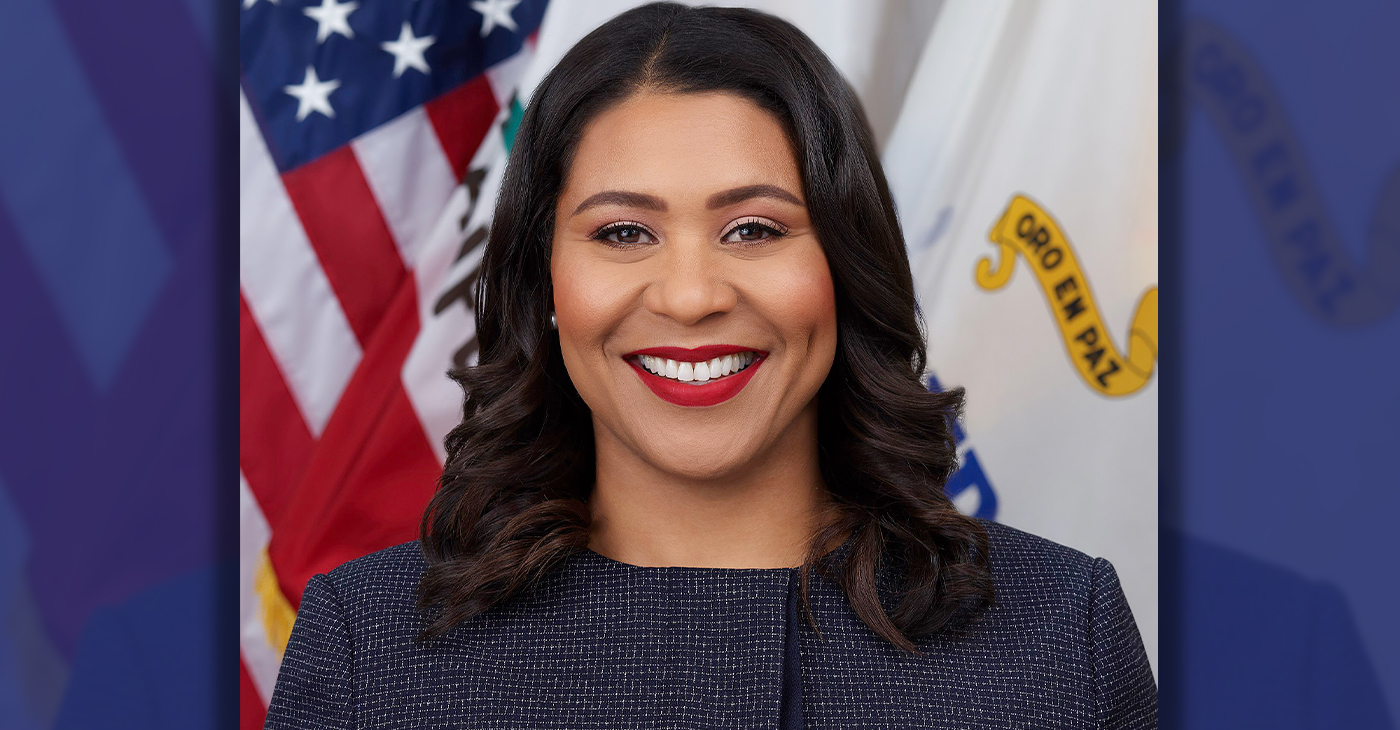
By Oakland Post Staff
On April 30, Mayor London N. Breed announced San Francisco has been awarded more than $37.9 million in funding from the California Department of Housing and Community Development (HCD) as part of the State’s Multifamily Housing Program (MHP).
The HCD loan will provide the final funding necessary for development of Casa Adelante – 1515 South Van Ness, a 168-unit affordable housing project located in San Francisco’s Mission District.
The new development at 1515 South Van Ness Ave. will provide 168 affordable homes to low-income families, formerly homeless families, and persons living with HIV earning between 25-80% of the San Francisco Area Median Income (AMI).
In addition, the project is anticipated to provide family-friendly amenities and ground floor community-serving commercial spaces that preserve the prevailing neighborhood character of the Calle 24 Latino Cultural District.
“This funding unlocks our ability to move on building affordable housing units for families in San Francisco at a crucial time. We understand the level of need for more housing that is accessible, and like the state, the city continues to face a challenging budget cycle,” said Breed. “1515 South Van Ness is a good example of what can be achieved in San Francisco when you have strong community partnerships and an unwavering commitment to deliver on critical needs for our residents.”
“From the beginning of my term as Supervisor, I have fought to bring affordable housing to 1515 South Van Ness” said Supervisor Hillary Ronen. “In the interim, the site has been utilized for homeless services and shelter, and I am thrilled that HCD has recognized the value of this development, and we are finally ready to break ground and bring 168 affordable homes to low income and formerly homeless families in the Mission.”
Owned and occupied by McMillan Electric Company until 2015, the City and County of San Francisco purchased 1515 South Van Ness Avenue in June 2019 with the intent of developing new affordable housing.
In November 2020, the San Francisco Mayor’s Office of Housing and Community Development (MOHCD) released a Multi-site Request for Qualifications (RFQ) seeking qualified developers to build affordable housing on the site, and subsequently selected Chinatown Community Development Corporation (CCDC) and Mission Economic Development Agency (MEDA) in May 2021 to develop the site.
The project is expected to begin construction in winter 2025.
“A strong, long-term push by Mission advocates to make this site 100% affordable is now paying off, with 168 family units that include services and childcare. People of color communities know what they need, and we are excited to be in partnership with a team, consisting of MEDA, CCDC, and MOHCD, that listens,” said Malcolm Yeung, Executive Director at CCDC.
“We are excited to be in partnership with CCDC, yet again, and for the opportunity to develop intergenerational affordable housing in the City’s Mission District,” said Luis Granados, executive director at MEDA.
Increasing housing affordable to lower-income and vulnerable residents is a key priority in the City’s Housing Element which calls for additional funding for affordable housing production and preservation, as well as Mayor Breed’s Housing for All Executive Directive that sets out the steps the City will take to meet the bold goal of allowing for 82,000 new homes to be built over the next eight years.
Tuesday’s funding announcement emphasizes the importance of regional and state collaboration in order to reach our housing and climate goals.
“We are thrilled—not just to bring a project of this size to a community with great need — but to do so with community-based developers and their partners who understand the neighborhood and sensitivities around cultural preservation,” said HCD Director Gustavo Velasquez.
Community
Opening Soon: Vibe Bistro Is Richmond’s New Hub for Coffee, Cuisine, Community and Culture
Vibe Bistro, located at 1503 MacDonald Ave., Suite B, Richmond, CA, is announcing its grand opening week, May 21-26, 2024. The café will be a hub where people can come together to enjoy coffee, cuisine, community, and culture, according to the establishment’s owner, Free Brown.
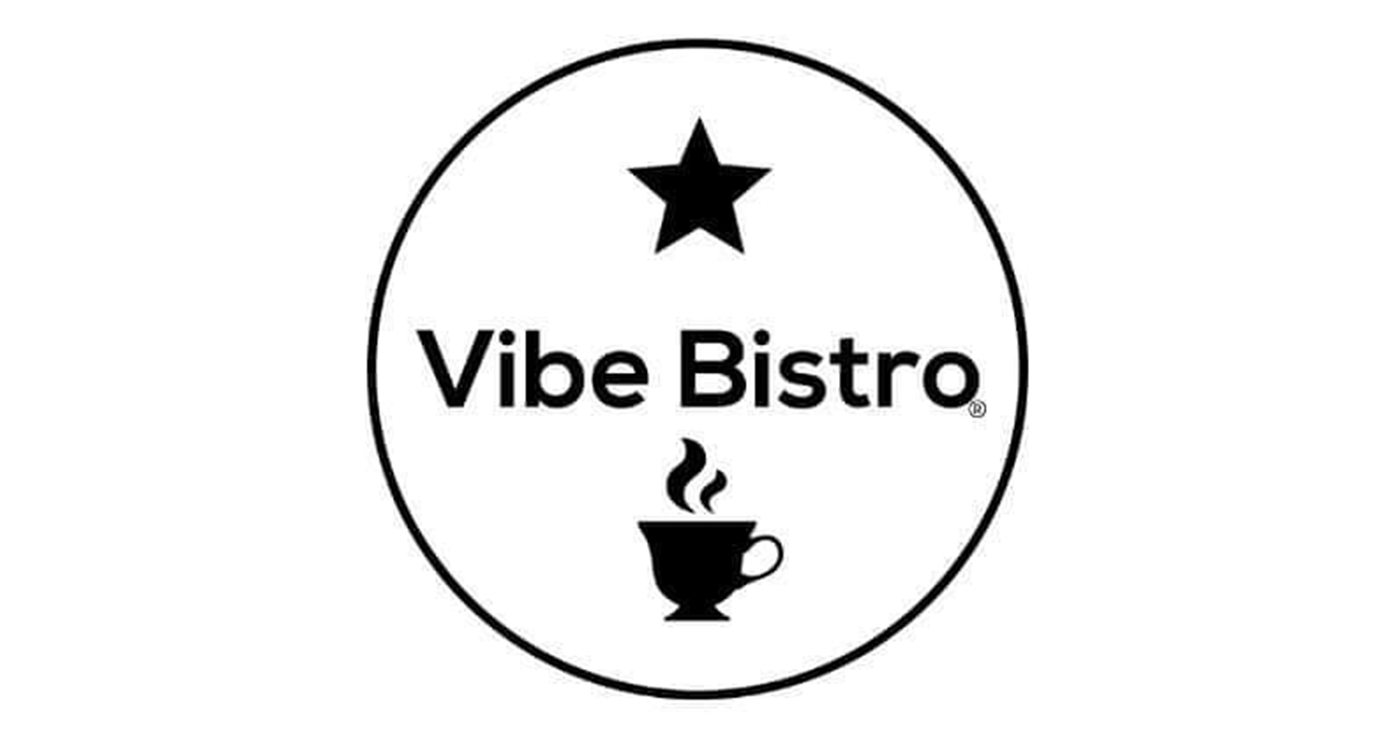
By Y’Anad Burrell
Vibe Bistro, located at 1503 MacDonald Ave., Suite B, Richmond, CA, is announcing its grand opening week, May 21-26, 2024.
The café will be a hub where people can come together to enjoy coffee, cuisine, community, and culture, according to the establishment’s owner, Free Brown.
“Vibe Bistro is Richmond’s neighborhood haven for soulful coffee, delicious food, and vibrant experiences. Vibe Bistro is not just a coffee shop; it’s a place where ‘coffee meets community” says Brown.
It occupies the space formerly known as the Richmond Food Hall, which was also the former location of OakStop Richmond.
During the grand opening week, folks are invited to join in celebrating the spirit of community. From Tuesday, May 21, Vibe Bistro will be open from 6 a.m. to 2 p.m. on weekdays, serving specialty coffees, convenient grab-n-go options, and delicious breakfast and lunch selections.
The official ribbon-cutting ceremony will be held on Thursday, May 23, from noon to 2 p.m., followed by surprise festivities that the owners say you will need to experience in-person to fully enjoy.
Vibe Bistro’s art exhibition opens May 23, through Sunday, May 26. It features a special artist talk led by renowned curator Jowhari Trahan, a story on glass, and a mural unveiling by Richmond’s own Nakari Syon.
Additionally, the community is invited to immerse themselves in artistic expression throughout the week with art and craft classes.
Get ready for ‘Feature Fridays’ at Vibe Bistro, where they will showcase the culinary creations of local food businesses. This initiative is not just about food, it’s about fostering a spirit of collaboration and community.
All local businesses are invited to be part of this exciting journey, says Brown.
For more information, visit www.VibeBistro.com, sign up for the newsletter to stay connected, and follow all social media platforms at @TheVibeBistro.
-

 Community3 weeks ago
Community3 weeks agoFinancial Assistance Bill for Descendants of Enslaved Persons to Help Them Purchase, Own, or Maintain a Home
-

 Business3 weeks ago
Business3 weeks agoV.P. Kamala Harris: Americans With Criminal Records Will Soon Be Eligible for SBA Loans
-

 Activism4 weeks ago
Activism4 weeks agoOakland Post: Week of April 10 – 16, 2024
-

 City Government4 days ago
City Government4 days agoCourt Throws Out Law That Allowed Californians to Build Duplexes, Triplexes and RDUs on Their Properties
-

 Activism2 weeks ago
Activism2 weeks agoOakland Post: Week of April 24 – 30, 2024
-

 Community3 weeks ago
Community3 weeks agoAG Bonta Says Oakland School Leaders Should Comply with State Laws to Avoid ‘Disparate Harm’ When Closing or Merging Schools
-

 Community3 weeks ago
Community3 weeks agoRichmond Nonprofit Helps Ex-Felons Get Back on Their Feet
-

 Community3 weeks ago
Community3 weeks agoOakland WNBA Player to be Inducted Into Hall of Fame



